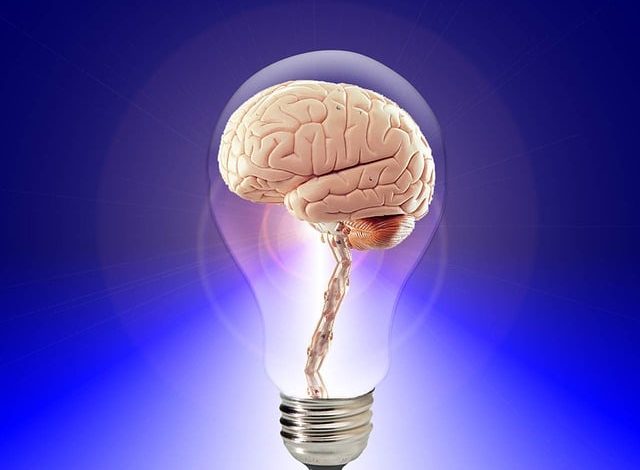Can Nootropic Pills Make You Smarter?

In a world where cognitive performance is highly valued, the quest for ways to enhance intelligence and boost mental acuity has led to the rise of nootropic pills. These substances, often referred to as “smart drugs” or cognitive enhancers, claim to improve various aspects of cognitive function, including memory, attention, creativity, and overall mental clarity.
As the demand for cognitive enhancement grows, it’s crucial to examine the science behind nootropic pills and assess whether they can truly make you smarter.
What are Nootropics?
Nootropics encompass a broad category of substances that have the potential to enhance cognitive function. These substances can include pharmaceutical drugs, herbal extracts, vitamins, and minerals.
The defining characteristics of nootropics, as outlined by Dr. Corneliu E. Giurgea, who coined the term in the 1970s, include improving memory and learning, enhancing the resistance of learned behaviors to conditions that disrupt them, protecting the brain from physical and chemical injuries, and increasing the efficacy of the brain’s control mechanisms.
Common Types of Nootropic Pills:
1. Racetams:
• One of the earliest and most well-known classes of nootropics, racetams such as piracetam and aniracetam are believed to enhance memory and learning.
• Mechanism: Racetams are thought to modulate neurotransmitter systems, particularly acetylcholine, which plays a crucial role in learning and memory.
2. Modafinil:
• Originally developed to treat narcolepsy, modafinil has gained popularity as a cognitive enhancer.
• Mechanism: Modafinil affects dopamine levels, promoting wakefulness and heightened focus.
3. Natural Nootropics:
• Herbal extracts like ginkgo biloba, bacopa monnieri, and Panax ginseng are often used as natural alternatives.
• Mechanism: These substances may improve cognitive function by increasing blood flow to the brain, providing antioxidants, and influencing neurotransmitter activity.
4. Cholinergics:
• Compounds that influence the cholinergic system, such as choline and acetylcholine precursors.
• Mechanism: Cholinergics support the production of acetylcholine, a neurotransmitter essential for memory and learning.
The Science Behind Nootropics:
While the mechanisms of action vary among different types of nootropics, many of them share a common goal – to enhance neurotransmitter activity and improve communication between brain cells. For example, racetams are believed to modulate glutamate receptors, affecting synaptic plasticity and learning. Modafinil, on the other hand, primarily targets dopamine receptors, influencing alertness and cognitive function.
Studies on Nootropics and Cognitive Enhancement:
1. Piracetam and Memory:
• Early studies on piracetam suggested potential memory enhancement, but results have been mixed.
• Recent research questions the efficacy of piracetam and emphasizes the need for more rigorous studies.
2. Modafinil and Cognitive Performance:
• Modafinil has shown promise in enhancing cognitive function in sleep-deprived individuals and those with certain cognitive disorders.
• Its long-term effects and safety for use in healthy individuals are areas of ongoing research.
3. Natural Nootropics and Cognitive Function:
• Ginkgo biloba has been studied for its potential to improve memory and cognitive function, with some positive findings.
• Bacopa monnieri has shown promise in memory enhancement, but more research is needed to establish its effectiveness.
Ethical Considerations
The use of nootropic pills raises ethical questions regarding fairness, particularly in academic and professional settings. If certain individuals have access to cognitive enhancers, does it create an uneven playing field? Moreover, concerns about the long-term effects and potential risks associated with these substances prompt a closer examination of the ethical implications of using nootropic pills.
Potential Risks and Side Effects:
1. Dependency and Tolerance:
• Some individuals may develop a dependency on nootropic substances, leading to tolerance and diminishing effects over time.
• Abrupt discontinuation of certain substances can result in withdrawal symptoms.
2. Adverse Reactions:
• Side effects vary among different nootropics and can include headaches, insomnia, gastrointestinal issues, and mood swings.
• Individual responses to these substances can differ significantly.
3. Long-Term Safety:
• Limited research exists on the long-term safety of many nootropics, especially in healthy individuals without specific cognitive impairments.
• The potential for unknown risks underscores the importance of cautious use.
Conclusion
Despite the social media buzz, the scientific evidence supporting the concept that nootropic pills make you smarter is still inconclusive. Some individuals may experience cognitive benefits from certain nootropics, while others may not see significant improvements. Additionally, the potential risks and ethical considerations associated with the use of these substances underscore the need for careful scrutiny.
As research on nootropics continues, it is essential to approach their use with caution, considering individual differences, potential side effects, and the lack of long-term safety data. The quest for cognitive enhancement should not overshadow the importance of maintaining a healthy lifestyle, including proper nutrition, regular exercise, and sufficient sleep, as these factors play integral roles in cognitive function.
Ultimately, the path to becoming “smarter” involves a multifaceted approach that considers not only the potential benefits of nootropic pills but also their limitations and the broader context of overall brain health.





